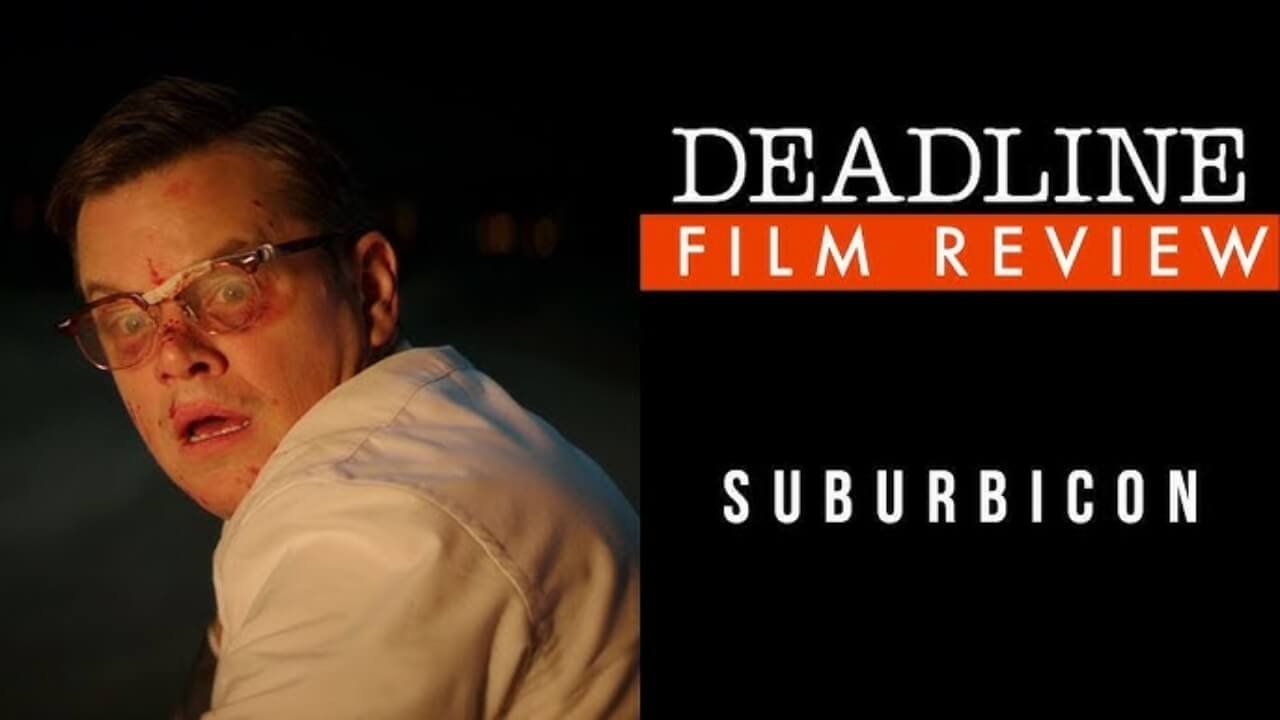When discussing the movie Suburbicon, an exploration of suburbia’s darkest corners through satire, one cannot ignore the mixed feelings it has elicited from viewers and critics alike. The phrase suburbicon reviews has become a gateway to understanding the film’s polarizing nature. This 2017 release, directed by George Clooney from a script co-written by the Coen brothers, offers a provocative vision of 1950s America that is as much a social commentary as it is a dark comedy. The film attempts to tackle racism, violence, and hypocrisy hidden beneath the pristine veneer of suburbia, but how successfully does it deliver? This blog will delve into the substance and reception of Suburbicon, drawing on reviews, expert opinions, and analytical insights to present a comprehensive perspective.
The Context and Premise of Suburbicon
Set in a fictitious American suburb in the late 1950s, Suburbicon introduces audiences to a seemingly peaceful neighborhood disrupted by two significant and intertwined conflicts. The first revolves around the arrival of a Black family into the predominantly white community, unmasking the era’s racial tensions and prejudices. Concurrently, the film follows the story of the Lodge family when a violent home invasion results in murder and deceit, revealing dark secrets and moral decay beneath their perfect lives.
This dual narrative underpins the film’s sharp, ironic tone, showcasing racial bigotry alongside a twisted domestic thriller. Suburbia, often idealized in American cultural imagery, is instead depicted as a place rife with hypocrisy and moral blindness.
A Mixed Bag: Critical and Audience Receptions
Exploring suburbicon reviews reveals a wide divergence of opinion. On one hand, many critics appreciated the film’s ambition and technical merits. The cinematography is crisp and colorful, capturing the aesthetic of the 1950s with remarkable detail. The production design and costume work vividly bring the era to life, immersing the viewer in a vibrant yet unsettling world.
However, the film’s narrative coherence and tonal balance have been questioned. For instance, several reviews highlight George Clooney’s direction as a limiting factor—while the Coen brothers’ script brims with potential, Clooney’s handling of the material reportedly lacks the subtlety and sharpness that characterize the Coens’ best work. Julianne Moore’s performance as Rose Lodge draws praise for its intensity, but critics note Matt Damon’s portrayal feels uneven, oscillating awkwardly between comedic and serious tones. This dissonance affects the film’s dark comedic ambitions and violent scenes, sometimes making them uncomfortable or difficult to engage with rather than provocatively entertaining.
Roger Ebert’s review encapsulates this sentiment, describing the movie as “flat” and lacking “witty dialogue” or “interesting characters,” while other reviewers commend its bold social commentary, especially its critique of racism disguised as suburban normality.
Expert Reflection on Suburbicon’s Themes
Dr. Elizabeth Harmon, a film studies scholar specializing in American cinema and cultural narratives, comments on the film’s attempt at social critique:
“Suburbicon uses the suburban setting not simply as a backdrop but as a character in itself, reflecting mid-20th century American contradictions—where outward appearances masked deep-seated social tensions. Though imperfect in execution, the film forces viewers to confront uncomfortable truths about racial exclusion and moral duplicity still relevant today.”
This marks the film’s strength—its willingness to engage with difficult themes through satire and dark humor, inviting the audience to reflect on the persistence of these issues in contemporary society.
Deeper Exploration: Satire, Social Commentary, and Film Technique
Suburbicon reviews often point to the film’s genre ambiguity. It is neither a straightforward thriller nor a pure comedy. Instead, it occupies a liminal space where black comedy and social drama collide. This blending is daring but polarizing. The film’s satirical lens exposes the absurdity of racial prejudices and suburban facades, but its violent narrative scenes sometimes jar with the humor, creating tonal inconsistencies.
Moreover, the use of irony runs deep—while the community protests the Black family’s presence, their own internal dysfunction and brutality unfold next door. This paradoxical portrayal highlights societal hypocrisies and the often overlooked violence beneath calm surfaces. In terms of cinematic technique, Clooney employs a bright palette and nostalgic set details to contrast sharply with the story’s dark undercurrents.
Reception in the American Cultural Context
For the American audience, the themes of Suburbicon resonate beyond a historical period piece. The film acts as a mirror reflecting ongoing racial tensions and suburban mythologies that remain part of the American narrative. Contemporary viewers may find the film’s commentary particularly timely amidst renewed national conversations about race and social justice.
However, the mixed critical reception suggests Suburbicon struggles to balance message and medium. While it is ambitious and visually striking, some viewers report discomfort with its violent and bleak comedic elements, resulting in a film experience that is as perplexing as it is thought-provoking.
Conclusion: Should You Engage with Suburbicon?
In conclusion, Suburbicon is a challenging film that polarizes as much as it provokes. From the analysis of suburbicon reviews, it is clear this is not a film that fits neatly into a box nor uniformly delights audiences. It combines striking technical artistry and a bold social agenda, but its uneven tone and narrative execution may alienate some viewers.
For those interested in films that push boundaries and provoke critical reflection on American societal norms, Suburbicon offers rich material. Its commentary on race, suburban life, and human nature remains compelling and relevant, even if its full realization feels flawed.
Ultimately, Suburbicon stands as a conversation starter in American cinema—a movie that dares to expose the dark side of the American Dream through satire, even if imperfectly. Engaging with it means grappling with uncomfortable truths, and that is a viewing experience worth considering.
you may also like
Understanding Treacher Collins Movie and Its Impact on Awareness

